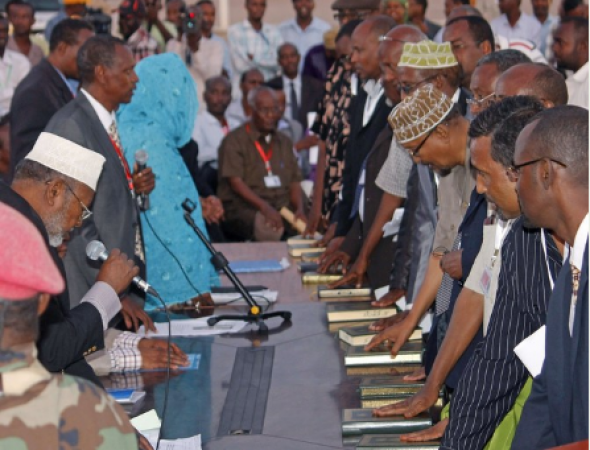
Mogadishu: Leading Somali politicians criticised a plan to reform the nation's electoral system and implement universal suffrage on Monday, alleging that there had been inadequate public consultation and that some of the proposals were unconstitutional.
On Sunday, the central government of Somalia and the four federal member states declared their agreement to implement the one-person, one-vote system, with local elections scheduled for June 2024.
It came after President Hassan Sheikh Mohamud promised in March to abolish the intricate clan-based indirect voting system that had been in use in the troubled Horn of Africa nation for more than 50 years.
Also Read: Afghanistan requests 'diplomatic' resolution with Iran following border clashes
The National Consultative Forum's decision on Sunday also calls for a single presidential ticket in which voters would select a president and vice president, effectively abolishing the position of prime minister.
Parliament still needs to approve the proposals.
However, on Monday, a group of about eight well-known politicians—including four former prime ministers and former president Sharif Sheikh Ahmed—issued a statement objecting to the deal.
Also Read: Iran's ally: Ukraine's parliament approves sanctions against it
"We applaud efforts to get the country to a level of one-person, one-vote and a multi-party system... that enforces democratic governance," they declared.
However, they asserted that making a decision of such national importance "without the full representation of all federal member states, will put the unity of the people in jeopardy", alluding to the absence of Puntland's president Said Abdullahi Deni from the meeting on Sunday.
A breakdown, a lack of confidence, and the breakdown of society will result from making changes to the country's governance system and power-sharing system without thorough consultation and without consulting the public.
The signatories expressed their opposition to a new electoral calendar that would extend the current expiration dates of some mandates and call for parliamentary and presidential elections in the federal states on November 30 of the following year.
They also opposed the idea of limiting the number of political parties that can run in elections to two, arguing that this would result in "power being confined to a small group of people."
Somalia is battling a bloody insurgency by Al-Shabab jihadists as well as natural disasters like a punishing drought that has left millions of people facing hunger as it attempts to recover from decades of conflict and chaos. Since the dictator Siad Barre seized power in 1969, the nation has not held nationwide elections with a system of one person, one vote.
Also Read: Numerous Albanians in the UK have violated their immigration bail
However, Puntland held direct elections for local councils on Thursday, marking a historic development. Somalia's international allies expressed optimism that this would encourage greater democracy throughout the country